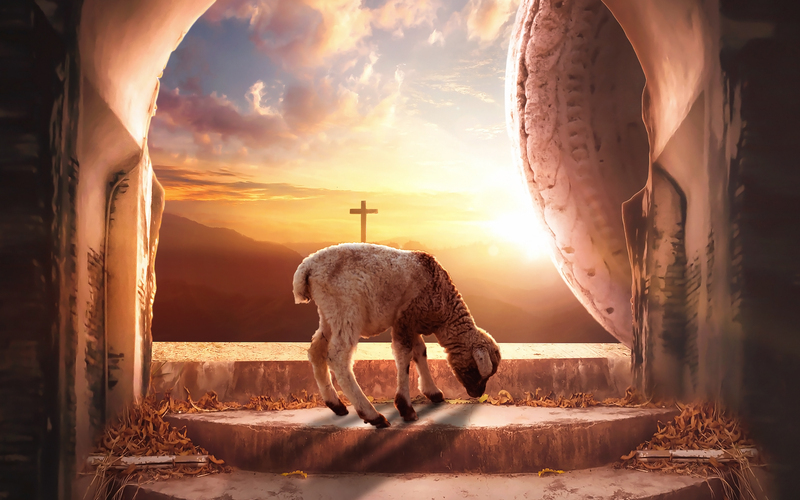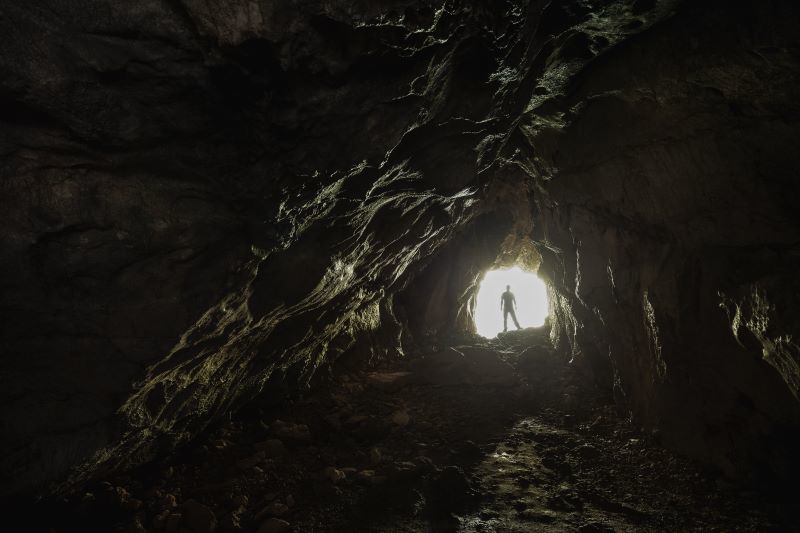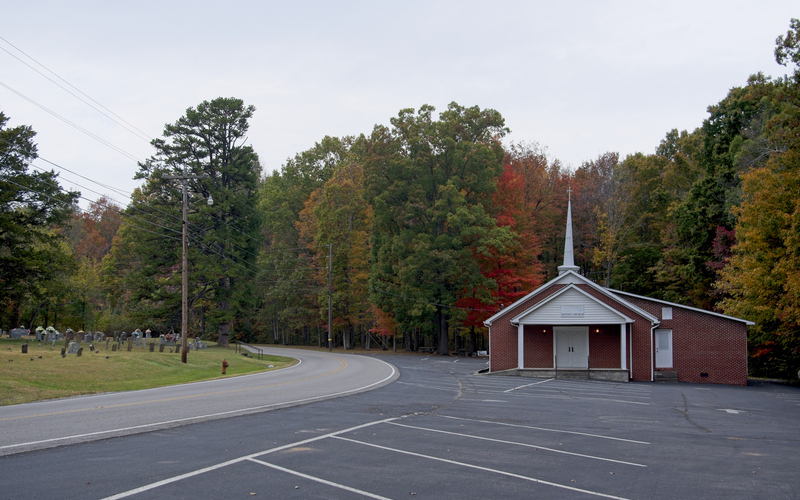A Careful Look at 2 Chronicles 7:14
Sign up for a six month free
trial of The Stand Magazine!
Then the Lord appeared to Solomon at night and said to him, “I have heard your prayer and have chosen this place for Myself as a house of sacrifice. If I shut up the heavens so that there is no rain, or if I command the locust to devour the land, or if I send pestilence among My people, and My people who are called by My name humble themselves and pray and seek My face and turn from their wicked ways, then I will hear from heaven, will forgive their sin and will heal their land (2 Chronicles 7:12-14).
Second Chronicles 7:14 is one of the most well-known and quoted passages of the Old Testament. Unfortunately, though, it is also one of the most misunderstood of the oft-quoted Old Testament passages.
It gets trotted out every time something terrible happens that has national implications. It was referenced after the September 11, 2001, terrorist attacks, the George Floyd/Black Lives Matter riots, COVID, the entire Biden presidency, and now after the Charlie Kirk assassination. The message when saying or posting that verse usually goes something like this: The spiritual darkness in America is growing and will soon be intolerable. If Christians would just get serious about prayer, God would fix (or heal) our land.
But look a little closer at the passage above. You should also read Solomon’s entire prayer of dedication (for the newly built and opened temple) in 2 Chronicles 6:12-42, since God’s response in 7:14 is directly tied to that prayer. Solomon asked God to listen to the prayers of repentant believers who acknowledge that their own sin(s) prompted Him to punish them in ways that affected the nation. Defeat before their enemies (6:24). Drought (6:26-27). Famine, disease, and locusts (6:28).
In the passage above, God agrees with Solomon. Their national emergencies would be His response to their unfaithfulness: If I shut up the heavens … or if I command the locust to devour the land, or if I send pestilence among My people… When I hear or see 2 Chronicles 7:14 preached or posted online these days, there is rarely any acknowledgment of sin among God’s people. It’s like people are saying, “Help us, God, because of the unwarranted darkness we are having to endure!” But is it really unwarranted?
Second Chronicles 7:14 is more about restoration than it is about revival. It’s about what God promises to do when we address the darkness we harbor within ourselves. Not only when we seek His face, but also turn from our wicked ways.
I’m not saying that all the darkness that is enveloping America (and the world, for that matter) is the responsibility of the church. But some of it is.
There are basically three causes for any nation to be oppressed with darkness:
1. Satan is still among us, and darkness goes where he goes.
2. Sin is the commodity of the kingdom of darkness.
3. Believers’ disobedience to God.
As you can see, only number 3 can be laid at the feet of the church. Christians can neither control Satan nor stop the world from embracing hedonism and narcissism (we can bring light into the darkened lives of unbelievers one at a time by sharing the gospel, but we can’t flip a switch and force light into the world). There will be a measure of darkness in the world until Jesus returns.
Number 3 doesn’t involve all Christians either. Jesus isn’t addressing all who call Him Savior in Matthew 7:21 when He warned,
“Not everyone who says to Me, ‘Lord, Lord,’ will enter the kingdom of heaven, but he who does the will of My Father who is in heaven will enter.
Just those among us who don’t do the will of My Father. I don’t know how many in the church are disobedient to God, but if the parable of the sower and the seed is any indication … it’s a lot. And that only makes God’s promise to Solomon that much more remarkable.
All it takes for God to move in a restorative way to heal a darkened land is for the minority of the faithful to acknowledge their sin(s) and repent. In other words, a nation can be healed by God despite Satan’s presence, and despite the unrepentant sins of atheists and God haters, and despite the deceived within the church. All it takes for God to dispel the darkness is for the genuinely faithful among us to acknowledge our sins in humility, pray to God for help, and turn from our own wicked ways!
And there is the rub. Confession of sin and changing direction (repentance) have gone out of vogue in today’s Christianity. When is the last time you heard a fellow Christian say, “I’m sorry.” “I shouldn’t have said that.” “I shouldn’t have done that.” “How can I make this right?” “Will you forgive me?” Either we think we don’t sin, or we just want people to move on from our sinful acts of disobedience to God.
And that is what our sin is. Aimed at God. Remember David and Bathsheba? When confronted by Nathan the prophet about his adultery and murder, the King of Israel said, “I have sinned against the LORD” (2 Samuel 12:13). Two of the greatest men in the Bible famously acknowledged their sinfulness. King David and the Apostle Peter (“Go away from me Lord, for I am a sinful man!” [Luke 5:8]). Vanity and pride within us always seek to find an excuse or justification for our sins. Or worse, we can believe that since God has seen it all (regularly), our sin isn’t that big an issue to Him. He’s used to it, and what we did doesn’t really offend Him anymore. It’s evil and must be confessed and turned from.
It's not just the individual and personal unrepented sins of believers that are evil and must be turned from. For decades, many preachers in America have been either uninterested or fearful of biblically addressing the sins of culture and society.
“Don’t bring politics (or political issues) into church!”
· Don’t talk about abortion.
· Don’t talk about homosexuality (unless you support it).
· Don’t talk about divorce.
· Don't talk about pornography.
· Don’t talk about elections.
· Don't talk about adultery.
· Don't talk about promiscuity.
· Don't talk about God in education.
The fastest way to become a worldly church is to never talk about the world in the church.
When Jesus was crucified, the worldly authorities affixed a sign over his head which read, “THIS IS JESUS THE KING OF THE JEWS” (Matthew 27:37). That was a political statement.
Christianity has never been just a religion. It is about every aspect and facet of life imaginable. That is why it was first called the Way (Acts 9:2; 19:9; 19:23; 24:14; 24:22). Therefore, nothing is out of bounds in the pulpit.
To build a proverbial wall of silence in a church sanctuary is wickedness because it sends the message to those who are suffering from their sinful decisions or those made by others against them, not to expect deliverance because what they have done is so vile it won’t even be mentioned in church. It also sends a message to the victimizers not to worry about what they are doing to others because it will never be addressed from the pulpit.
The gospel calls for all humanity to repent and turn in faith and belief to Jesus Christ for eternal life. Second Chronicles 7:14 calls for “My people who are called by My name” to seek God in humility and “turn from their evil ways” for their land to be healed.
It’s not all our fault … but some of it is. Will we confess it and turn from it?

Sign up for a free six-month trial of
The Stand Magazine!
Sign up for free to receive notable blogs delivered to your email weekly.



















